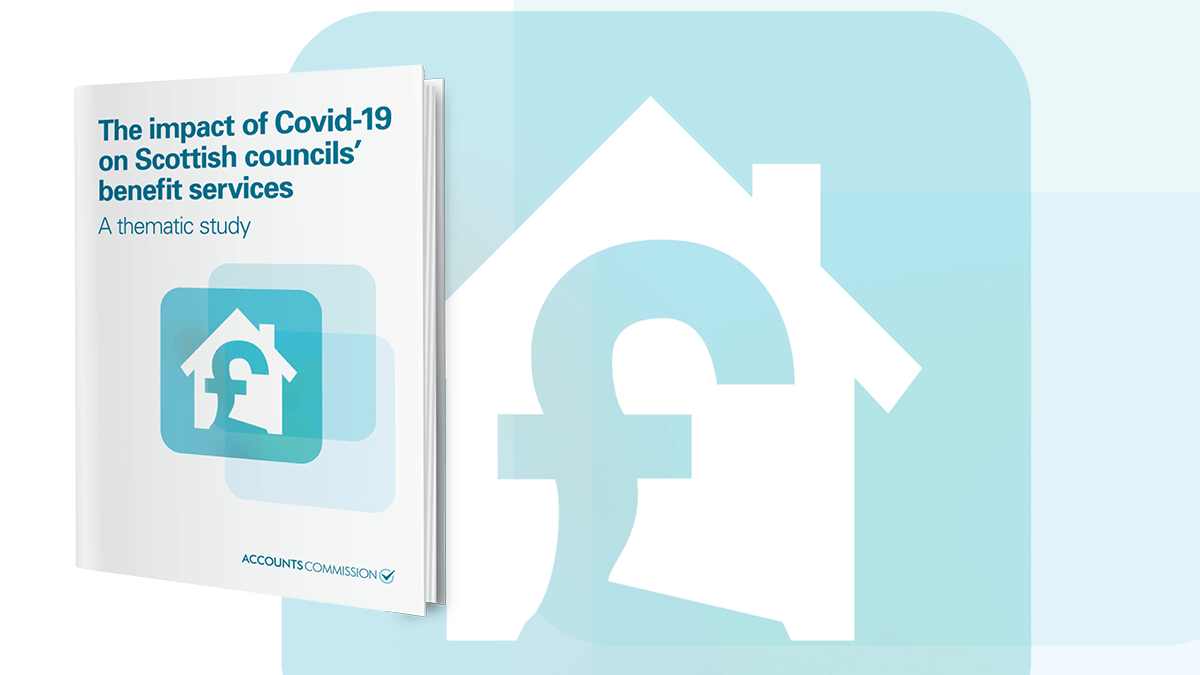Most Scottish councils maintained or improved housing benefit service performance, despite Covid-19 disruptions

Most of Scotland's councils have maintained or improved their delivery of vital benefits during the Covid-19 pandemic, despite short-staffing and major disruptions from having to abruptly move to home or remote working.
In a report published today, the Accounts Commission, which reports on the performance of local government, says most councils adapted quickly and effectively from March 2020, ensuring that lifeline benefit services continued to help and support those in need. At very short notice, councils shifted a predominantly office-based, in-person service to one delivered virtually and largely from home.
They faced significant logistical challenges, including a worldwide shortage of IT equipment, remote access connectivity issues and establishing different ways to communicate with benefit recipients.
More than half of council benefit services were short-staffed throughout 2020/21, and relied on overtime, agency staff and secondments to ensure the service was delivered and to mitigate the impact on customers.
The report says that by the end of the 2020/21 financial year councils were largely able to maintain or improve performance and ensure that over 280,000 people who receive housing benefit in Scotland could access the service.
In this report, the Commission also make recommendations to support councils to continue improving.
Andrew Burns, member of the Accounts Commission said:
The benefits services delivered by all Scotland’s councils are a lifeline service to those needing help and support at what can be the most difficult times in their lives.
The scale, speed, and complexity of changes to benefit services since March 2020 provided councils and staff with many challenges. That council staff were able to ensure minimal disruption to this vital service cannot be underestimated. It is more impressive that, overall, we’ve seen many aspects of benefit service performance improve.





